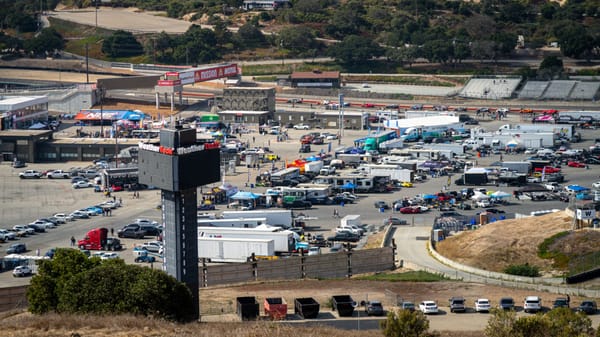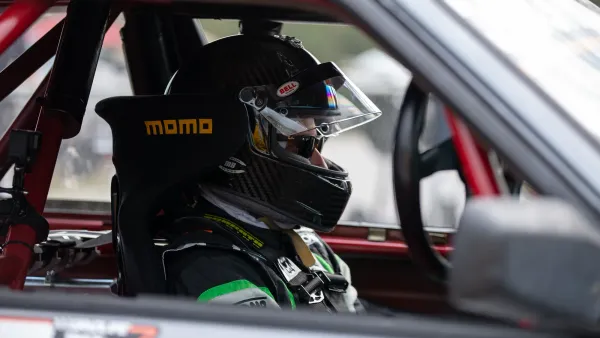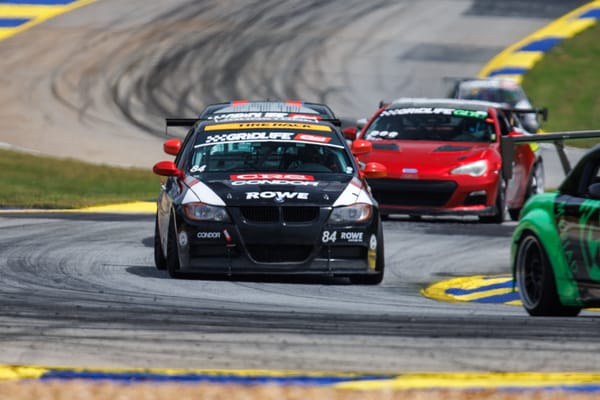The 2025 Gridlife season introduced a slew of changes aimed at long-term stability for an organization that was gaining momentum a decade after its creation. Unprecedented growth in recent years reached a tipping point in 2024, when Gridlife hired a new CEO intent on the "...continuation of the organization's mission to push the boundaries of motorsports culture while staying true to the community-driven spirit that has been its foundation." [Source]
Gridlife has always been a community-focused event, a testament to the integral role of drivers, spectators, and all-around car enthusiasts in its creation. As co-founder Adam Jabaay aptly put it in a public Facebook post, 'The drivers are what forced it to exist, in my perspective.'
The drivers and the community may have forced it to exist, but lately, they may be questioning whether they are the customer or the product being sold.
Co-founders Chris Stewart and Adam Jabaay are community leaders more than they are business visionaries. That is in no way a knock on them. The organization, which caters to numerous aspects of racing and car culture, is by most measures wildly successful. It reaches a young demographic that legacy automotive companies yearn to be in front of. It fosters some of the best grassroots time attack and wheel-to-wheel competition in the United States. Attendance and viewership numbers continue to skyrocket.
However, last week, a wave of constructive feedback erupted in the Facebook Group for the Gridlife Track Battle time attack series. The lengthy post, while critical, sparked a constructive dialogue, amassing over 200 replies within the first afternoon and, within a day, had totaled over 300 replies.
The commentary spanned everything from constructive and supportive to occasionally personal (it is Facebook, after all). But the vast majority of posts were heartfelt, thoughtful, and specific.
Airing of Grievances
Below is a bulleted summary of the original post and the common themes that echoed throughout the 300+ comment section. These are not necessarily the author's thoughts or opinions.
-
Event Costs Have Shot Up
- Entry fees, crew passes, memberships, licenses, and miscellaneous Torkhub fees are stacking up.
- Many feel they are paying more and getting less.
-
Unclear Value of Gold Pass, Membership, and Hard Cards
- Early access perks have diminished: no merch credit and unclear benefit over general admission.
- Some reported buying $50 crew passes that were never checked or used.
- Growing perception of being nickel-and-dimed.
-
Licensing System Feels Arbitrary
- Vague standards, inconsistent application, and provisional licenses issued to experienced drivers.
- Many noted delays and confusion in the process.
-
Three-Day Schedules Are Too Long and Inefficient
- Sunday racing makes travel difficult for many, especially long-haul drivers.
- Long gaps between sessions leave drivers waiting for hours (i.e. 10am race and 6pm race with nothing between).
-
Time Attack (TA) Drivers Feel Deprioritized
- Sessions are shorter and spaced far apart.
- Other classes seem to be prioritized for track time and schedule.
-
Rush Series Dominance and Favoritism
- Perceived as a class for wealthy teams and influencers.
- Seen taking up paddock space and getting disproportionate attention and track time.
-
Loss of HPDE (and Entry-Level Access)
- Removal of HPDE cut off the feeder path for new participants.
- Reduced opportunities for enthusiasts who don’t want to compete.
-
“Family Feel” and Grassroots Vibe is Fading
- Paddocks feel more corporate, less social.
- Longtime members feel increasingly out of place or discouraged.
-
Communication Gaps
- Inconsistent info about grid calls, rule changes, camping/RV logistics, podium sprints.
- Participants often left unsure of key details leading into events.
-
App and Registration Frustrations (TorkHub)
- Users report crashes, glitches, and high credit card fees.
- Many describe it as a poor experience compared to other orgs.
-
Favoritism and Lack of Transparency
- Enforcement of rules and infractions seems inconsistent.
- Lack of public access to comp forms, protest resolutions, and incident reports.
-
Lack of Return on Increased Costs
- Despite rising costs, many drivers feel they’re getting less value.
- Promised perks like merch boxes, hard cards, and parking access were not delivered.
-
Atmosphere Feels More Elitist and Less Inclusive
- The paddock is shifting toward high-dollar, sponsor-backed cars.
- Intimidating for newcomers and discouraging to mid-pack and budget racers.
-
Disconnection from Leadership
- Decisions appear top-down, with little visible driver input.
- Drivers are unsure who’s making changes or why, leading to disengagement.
"It's ... like the conversations that were happening in private, are happening on Facebook all of the sudden." -Lizard Brains
On Balance
Are all these gripes warranted? It certainly depends on who you ask. I agree with some of them, particularly the three-day schedule, which I find demanding due to the travel and time away. The extended schedule did not come with any extra track time, and the schedule itself can be a head-scratcher.
There are days when GLTC races are scheduled at ~10:00 AM and again at ~5:00 PM, leaving a long stretch of downtime in between. I'm all for having ample time to prep a car, but 7+ hours is not necessary, and only leads to exhaustion, wandering focus, and burnout.
Costs increased, and I am sure they had to. Some of the new fees seemed nickel-and-dime-y, but I understand the need.
I still have complaints about parity and transparency in GLTC (they removed the incident report, we can't view competitors' comp forms or dyno sheets, etc.). Still, I don't think these things have anything to do with this "new" direction of Gridlife, if you want to call it that.
Whether it's the new licensing system or the rookie mentorship program, the racing in GLTC feels cleaner and safer this year, which I am thankful for. There were so many crashes and incidents in my rookie year that I became jaded to the "this is a contact-free series" ethos that GLTC espouses, so this was a welcome improvement.
Crossroads
Andy Smedegard summed up this conundrum well:
Are we the product or the customer of the series?
The complaints stem from passionate customers, but Gridlife must now reckon with whether its drivers are the customer or the product. And if drivers are becoming the product, then who is the new customer?
Without knowing the company's financials, it is impossible to answer. It's still an interesting question to ponder.
While many of the changes requested by the drivers require standard operating procedures, better organization, and systems, as well as increased oversight, this increased organization can also lead to the grassroots organization losing some of its community-based charm.
There is a duality to many of these issues that shows we can't always have our cake and eat it too.
Lack of Alignment
You can tell from the bullet list summary that a wide range of topics was covered. Of course, there were even more, though some are extreme edge cases.
Kyle Heyer (the voice of Gridlife, who plays a wide variety of roles) pointed out that while some topics recur frequently, the underlying complaints may not align. To utilize Kyle's department of the live stream, some argue that Gridlife doesn't do enough to promote and champion its own drivers, while others claim that they don't see any value in the live stream at all. Another example: some argue that time attack is less accessible than ever, while others claim that there are too many slow cars clogging up TA sessions.
He is right, of course, and it shows that there is far more nuance that needs to be explored about each and every topic. These things take time to suss out, and not every topic can be a priority issue.
Special shout-out to Kyle for being an awesome human and going well above and beyond to cheerlead for all Gridlife drivers.
Moving Forward
While reading the clearly passionate commentary on the thread, I kept thinking two things over and over:
- It would be hard not to take this level of feedback personally (kudos to the leadership for showing restraint), and,
- Gridlife is fortunate to have thousands of people who care about the organization enough to share this feedback and help enable change.
Once the community reaches the point of apathy, people will walk away without a murmur. Thankfully, Gridlife isn’t there. Not even close.
Here's to hoping that we, as a community, can keep Gridlife accountable as they shape the company into a leading motorsports organization for many decades to come.









Let's drive faster together